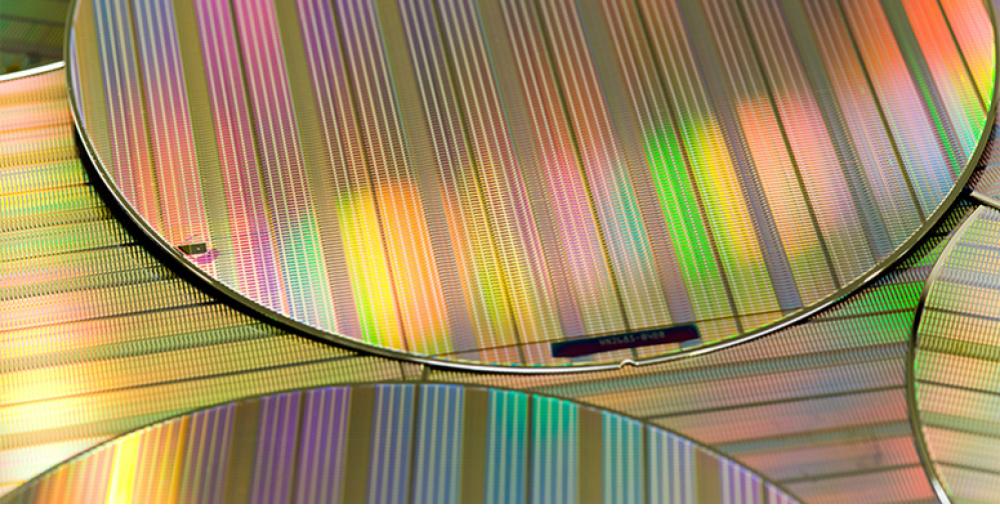Singapore has landed a new US$7.8 (S$10.5) billion semiconductor wafer plant, a joint venture between Vanguard International Semiconductor (VIS) of Taiwan and NXP Semiconductors NV of the Netherlands.
Chips ahoy!
Bloomberg reports that the two companies are participating in a joint venture to construct the plant, which is expected to begin construction in the later half of 2024. Production is expected to begin in 2027.
The Netherlands based NXP will own 40 per cent of the venture, while VIS, which is backed by the Taiwan based chipmaking giant Taiwan Semiconductor Manufacturing Co. (TSMC), will own the other 60 per cent.
A NXP press release revealed that both companies will each contribute US$1.9 billion (S$2.56 billion) each, with NXP providing a further US$1.6 billion (S$2.16 billion), and VIS another US$2.4 billion (S$3.23 billion).
The plant is to produce wafers for chips ranging from 130 nanometres to 40 nanometres.
It is also due to make larger 12-inch (300 mm) diameter wafers, from which individual chips are extracted.
Singapore already has the capacity to make smaller 8-inch wafers, meaning that the new plant will substantially increase chip output per wafer.
Not cutting edge, but sharp demand
These chips are far from the cutting edge, which is about 3 nm at the moment (which should be taken as more akin to a rating, rather than reflection of physical transistor size).
For context, 130 nm and 40 nm chips were introduced around 2002 and 2008 respectively.
While the new plant's chips will not be the most advanced, they remain in high demand, mainly for use in power control in automotive and industrial uses.
During the pandemic era, there was a general shortage of computer chips across the board, from the most advanced graphics cards, to the relatively humble types used in cars.
It resulted in situations where companies such as Ford were unable to complete millions of cars due solely to a lack of computer chips.
Diversification
The NXP CEO Kurt Sievers was quoted by Bloomberg as saying that "geopolitical turmoil" was a consideration in locating the new chip plant in Singapore.
The world's two largest superpowers, the United States and China, are currently in the midst of a trade war, and the U.S. is preventing many of the most advanced chips from reaching China.
In addition, those advanced chips are almost entirely produced in Taiwan, which is itself at the heart of geopolitical tension.
China considers the island a renegade province, and has not ruled out the use of force in order to reunify it with the mainland, although its stated preference is for peaceful reunification.
This tension has resulted in many tech manufacturers choosing to diversify their production away from China and Taiwan, with Southeast Asia benefitting significantly.
Singapore has benefitted from the this trend of diversification, with then-Deputy Prime Minister Lawrence Wong opening major chipmaker Global Foundries new facility in September 2023.
Malaysia has also recently announced a US$107 billion (S$144 billion) investment in its own semiconductor industry.
Skilled workforce
NXP told Bloomberg that it had picked Singapore due to the country's skilled workforce, as well as it already having a previous joint venture with VIS, which produces 8-inch wafers in Tampines.
In 2019, VIS bought another 8-inch wafer fabricator from Global Foundries.
The plant is expected to begin initial production in 2027, and have an expected output of 55,000 wafers per month by 2029.
NXP also projects that the plant will create 1,500 jobs, and should the initial phase go well, both parties will consider a second phase.
Bloomberg characterised the announcement as an early win for Singapore's new prime minister Lawrence Wong, especially in the face of rising regional competition in Thailand, Vietnam, and Malaysia.
Related stories
Top image via Vanguard International Semiconductor

If you like what you read, follow us on Facebook, Instagram, Twitter and Telegram to get the latest updates.



